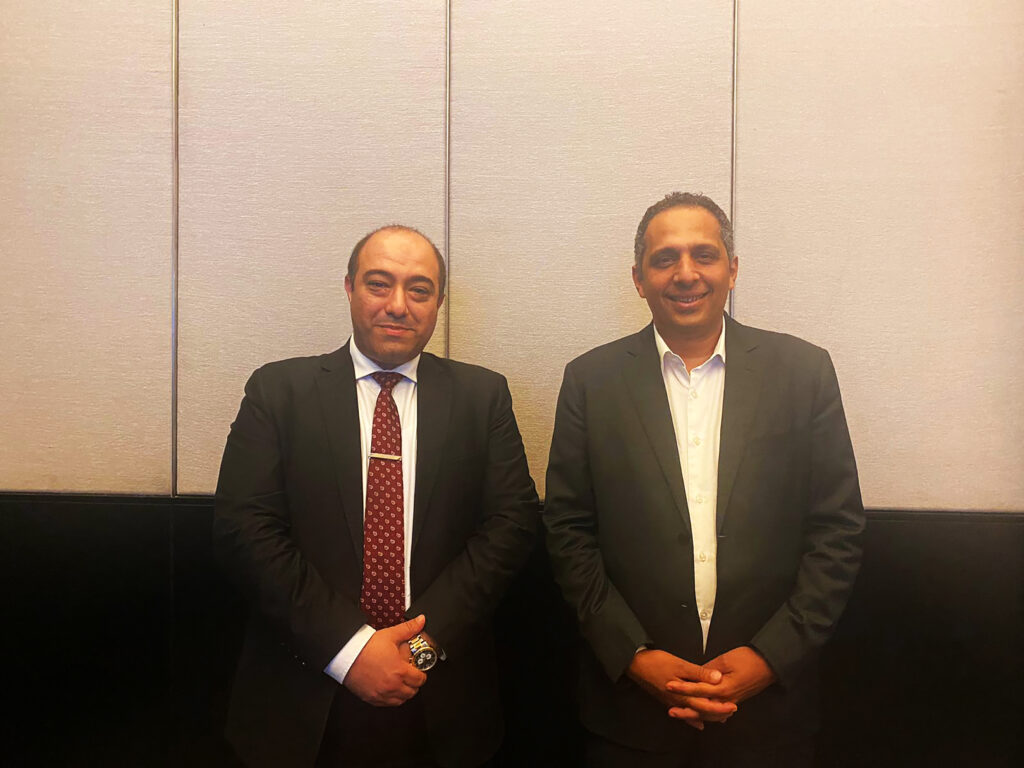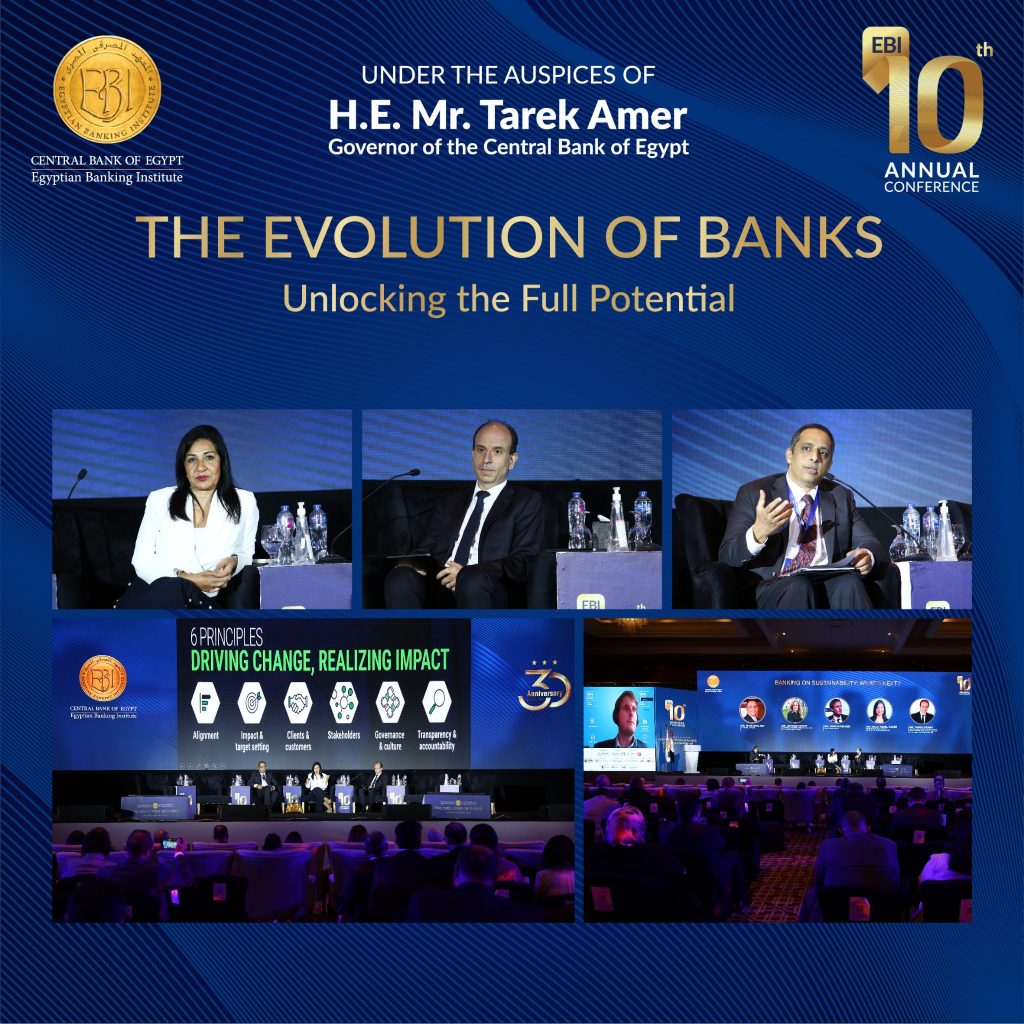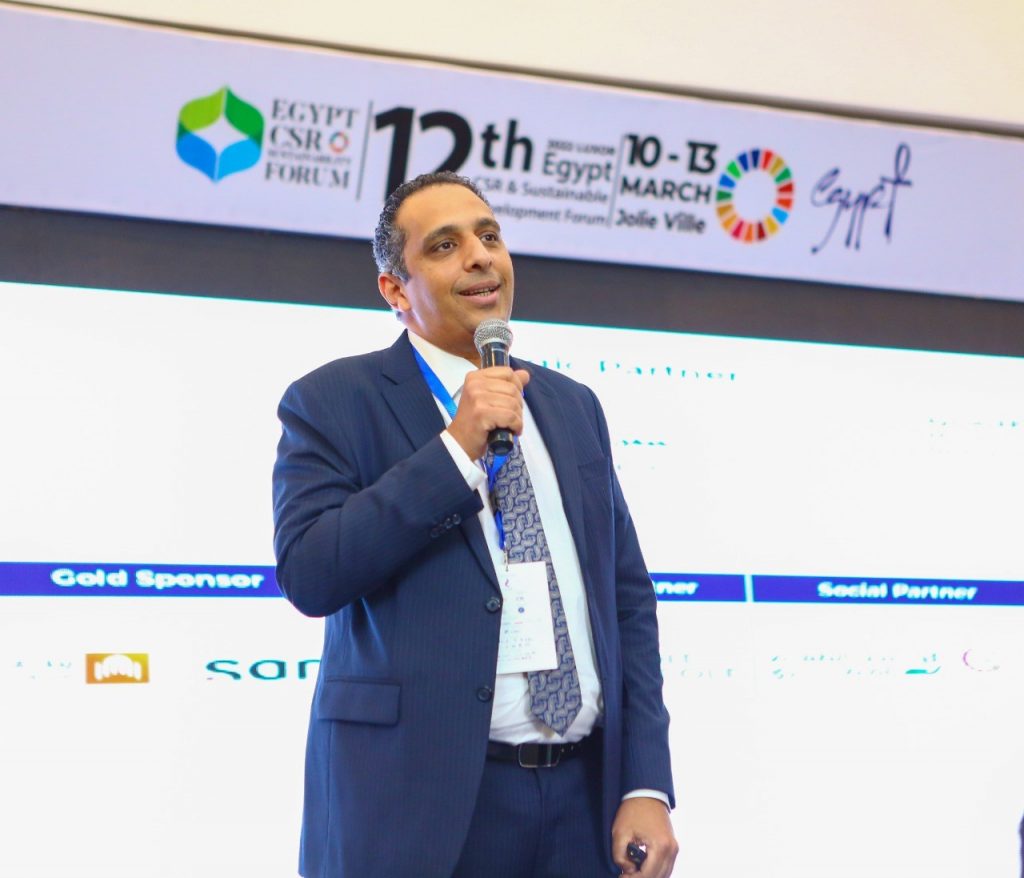Cairo, Egypt, September 1st, 2023
DCarbon Global and United Accountants – member of Nexia International forge mega Partnership for the new Sustainability Control Environment Framework (SCEF)
“Charting a New Trajectory: DCarbon Global and United Accountants – member of Nexia International join forces to pave the way for the implementation of advanced ESG Integration with the global COSO Framework for internal controls in the Banking Sector”
In a transformative alliance poised to reshape the future of the control environment and decision-making in the era of rising ESG regulatory requirements and Sustainable Businesses Leadership, DCarbon Global and United Accountants – member of Nexia International have unveiled a groundbreaking Partnership.
DCarbon Global, recognized as a vanguard in sustainability expertise and ESG advisory excellence, and United Accountants – member of Nexia International, the globally renowned network of independent accounting and consultancy in internal control and auditing services.
This visionary Partnership is set to lead the inventible global pursuit of consolidating financial and non-financial information in the Management annual reporting, and consequently as part of the internal control objectives and activities.
Through the collaboration of those harmonized cutting-edge sustainability acumen with financial prowess, as well as shared market expertise and competencies, the Partnership is uniquely positioned to address one of the commonly untapped areas of Controls. It offers CEOs, CEOs, CFOs, Internal Auditors and Chief Sustainability Officers with the comprehensive guide of Sustainability Control Environment Framework (SCEF) that sets the new intersection of financial and non-financing data and process governance and produces more intensely managed ESG information for Capital Markets.
Within the Capital Market; reliable, transparent, and material information always stood as the pivotal economic catalyst where information empowers investors to expertly allocate investment capital towards avenues of growth opportunities, while prudently mitigating risks to economic advancement and portfolio yields. Although financial statements remain vital to decision-makers, today investors are progressively pursuing comparably credible information regarding Environmental, Social, and Governance (ESG) metrics. This pursuit is driven by the recognition of ESG’s growing capacity to foster true value generation across intangible and tangible capitals, through advantageous trade-offs in the short, medium, and long terms.
DCarbon CEO, Dr. Ehab Shalaby highlighted: “In the earlier absence of widely applicable financial metrics to measure performance on material sustainability-related risks and opportunities, these metrics were particularly sensitive to impairment due to the diverse management approaches to accounting for ESG compliance costs as well values; as a result driving the banks to mitigate such uncertainty by increasing risk premiums and cost of capital. Thus, the need of quantifying the market value of ESG metrics has become an imperative to decision-making to safeguard a well-informed capital allocation by investors”.
Within the traditional enterprise resource planning (ERP) and financial reporting systems, financial data are reinforced by effective internal controls that are commonly supported by the prevalent use of accounting standards, sound data governance, well-established regulatory oversight, and broad market acceptance. It is time for ESG information to reside in the same position using professional judgment! ESG ad hoc controls around selective sustainability-related risks, activities, and performance indicators are no longer sufficient to reflect its actual magnitude of impacts and implications within the Banking sector.
Dr. Haytham Torkey, CEO of United Accountants – member of Nexia International, added: “COSO is the most widely used framework for establishing internal controls over financial reporting and for evaluating and maintaining their effectiveness. We are confident that the newly anticipated Sustainability Control Environment Framework (SCEF) shall set an equally robust stage for the establishment and maintenance of processes and for the required intersecting discipline to govern controls over non-financial, and sustainability performance data as well”.
In the broader context, it is pivotal to underscore the centrality of the COSO framework. The Central Bank of Egypt (CBE), in its steadfast commitment to elevating the quality of internal control systems within the banking sector, has mandated the adoption of the “Internal Control Integrated Framework” promulgated by the Committee of Sponsoring Organizations of the Treadway Commission (COSO) in 2022, where CBE requires Banks to prepare and submit internal control reports by the Management, and which such report includes – among others – the assessment of the design effectiveness of the Bank’s internal control over financial reporting based the COSO Framework. Furthermore, as of November 2022, the CBE equally requires Banks to report on their sustainability governance, ESG strategic goals and targets progress, sustainable finance integration, and climate-related risks implications on the bank’s lending portfolios; thus establishing a comprehensive ecosystem to govern those processes under a methodical ESG system building architecture.
In light of these two parallel financial and ESG mandates, this Partnership – through the SCEF – aims to assist Banks in efficiently conducting their internal controls over both financial and non-financial information, eliminate duplicated processes and internal auditing reporting, achieve accuracy and completeness of records, provide credible information to capital allocation decision-making, and finally ensure that the Banks regulatory obligations are streamlined and that controls activities seamlessly integrate both those two mandates where they intersect and respectively impact one another.
As observed by United Accountants – member of Nexia International and DCarbon Global, ESG Strategic Frameworks and the COSO Framework have evident proximity in terms of seeking the fulfillment of common objectives in three distinct categories: effectiveness and efficiency of operations, reliability of reported data (ESG and financial respectively), and compliance with applicable laws and regulations. The SECF seeks to align ESG and financial data across the 17 internal control principles of the COSO Framework. This twining methodology shall be established across the five auditing components: 1) Control Environment 2) Risk Assessment 3) Control Activities 4) Information and Communication, and finally 5) Monitoring Activities.
Aligned with the GRI, TCFD, SASB and their associated implications within the adoption of the IFRS S1 and S2, DCarbon’s ESG System Building Approach has been a well-recognized methodology in supporting businesses in developing a comprehensive integrated ecosystem that governs the intersection between those standards in relation to ESG Strategies, Policies, and Data Governance. Against this backdrop, the Partnership is now set forth to establish the first comprehensive guidance through the Sustainability Control Environment Framework (SCEF), which shall capitalize on the internationally renowned COSO Framework and its counterpart ESG System Building Approach.
Shalaby emphasized on a shared mission: “As we stand on the crossroads of unprecedented global changes, DCarbon synergy with United Accountants – a member of Nexia International holds a promise of great impacts. Our shared journey is one of empowering the Banking sector to recognize their leading role as agents of positive transformation in this critical time of pressing environmental and climate challenges and evolving social imperatives.”
Torkey expresses enthusiasm: “We are delighted to board on this transformative journey with DCarbon Global, where this partnership stands as a resounding testament to our collective commitment towards the Banking sector to provide a practical contribution to a perpetual creation of long-term value that is supported by the union of ESG and financial acumen and proficiency of both teams”
Planned to be soon released and jointly presented to the Banking sector, the Sustainability Control Environment Framework (SCEF) arises at the forefront of a significant critical time in line with the CBE mandates and the pertinent ESG data analysis and its related internal controls activities that Banks are robustly undertaking in 2023. SCEF is designed and developed to meet those mandates and support the role of the Banking sector toward credible data governance and internal control environment; leading to a continued Capital Market responsible growth and cater to the astute requisites of the visionary leaderships of the Banking industry in their role in propelling the sound economic growth that leverages environmental and social actions.





